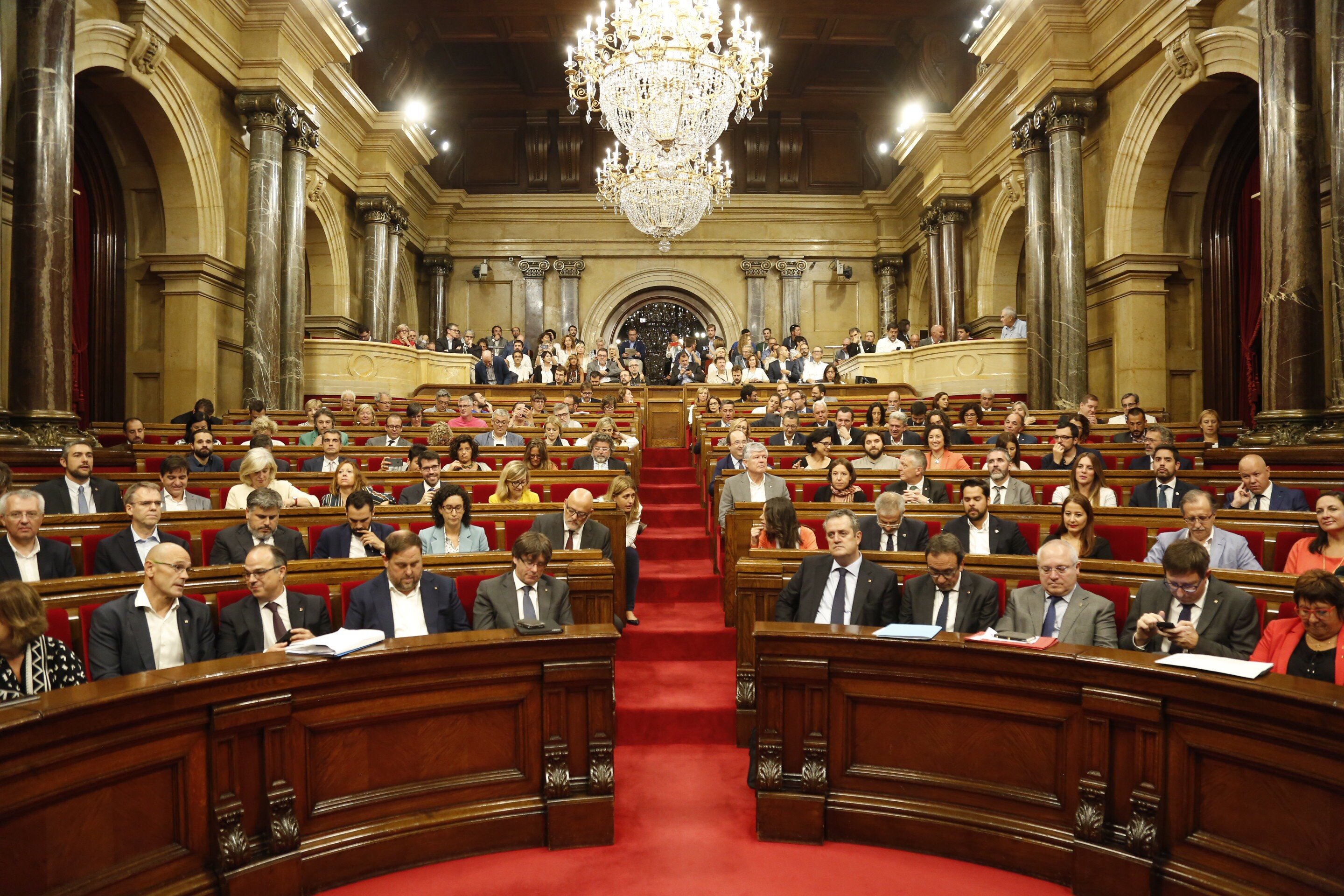Negotiations between Junts per Catalunya (JxCat) and Esquerra Republicana (ERC) for the investiture of the next president of Catalonia after last December's election have been interrupted. Both sides have confirmed this after a day of back and forth over the structure of the new government.
The morning started with tension from the beginning after Tuesday's conversations ended without a firm agreement, with JxCat even warning that they "didn't count out any eventuality", referring to a new election. ERC responded with a call for generosity and for the negotiations to not be stopped until an agreement is reached.
Nonetheless, early this afternoon, negotiators left the table in a tense atmosphere and discussions were interrupted, although both parties express confidence that they will be able to restart without problems shortly. In fact, they say they've actually paused to discuss the latest proposals put on the table.
The controversy swirls around the structure of the government around the president. ERC accepts that Puigdemont will assume the presidency of a Council of the Republic from Brussels and that JxCat will also hold the presidency of the government in Catalonia, which would fall to Jordi Sànchez, according to Junts's proposal, or possibly Jordi Turull.
A different vice-presidency
In exchange, however, ERC are calling for a vice-presidency with political responsibility, asking for it to include the role of government spokesperson, and for the secretaries of Communication and Diffusion, previously shared equally between the two groups, and the control of the Catalan public media to move to the department of the vice-presidency from the department of the presidency where they were under minister Turull. JxCat are willing to hand over some of these roles, but not all of them.
The argument is that Oriol Junqueras's vice-presidency in the last Parliament was essentially financial in nature, incorporating the Economy ministry with its political profile coming from the fact it was Junqueras in the role. With the new vice-presidency, ERC don't want to repeat the same plan but want to recover the vice-presidency they held before 2010 which was eminently political.
JxCat is reported to have proposed Junqueras assume the vice-presidency as part of their overall plan to restore as far as possible the previous government. That would leave both the president, if Jordi Sànchez does get the role, and the vice-president imprisoned, so the day-to-day responsibility for running the government would fall to Jordi Turull.
Neither ERC nor Junqueras himself accept this plan, warning that like JxCat has chosen the president, they will choose the vice-president. JxCat say that they don't want to impose any name as it corresponds to ERC to nominate who they want. Mentioned by negotiators in relation to the role has been Marta Rovira, ERC's secretary general.
As for sharing out the departments, JxCat are willing to give Education to ERC, but want Health in exchange. The two groups say there is no conflict over the allocation of the departments, despite JxCat insisting the 50-50 split has to consider the budgets they each govern.
ERC's spokesperson, Sergi Sabrià, downplayed the problems. In comments in the Parliament, he called for "responsibility". "We're in the last moments of a key negotiation for the country's future," he said.
Sabrià emphasised the need to recover Catalan institutions after Spanish intervention in the region and called for "generosity" to make this "urgent" objective possible. "The last minutes can always bring more tension, but with good faith from everyone we will achieve the objective," he said.
For their part, Junts per Catalunya say that the stumbling block isn't in the structure of the government, rather in the need for a joint agreement with all the pieces fitting together, starting with confirming Puigdemont's role.

